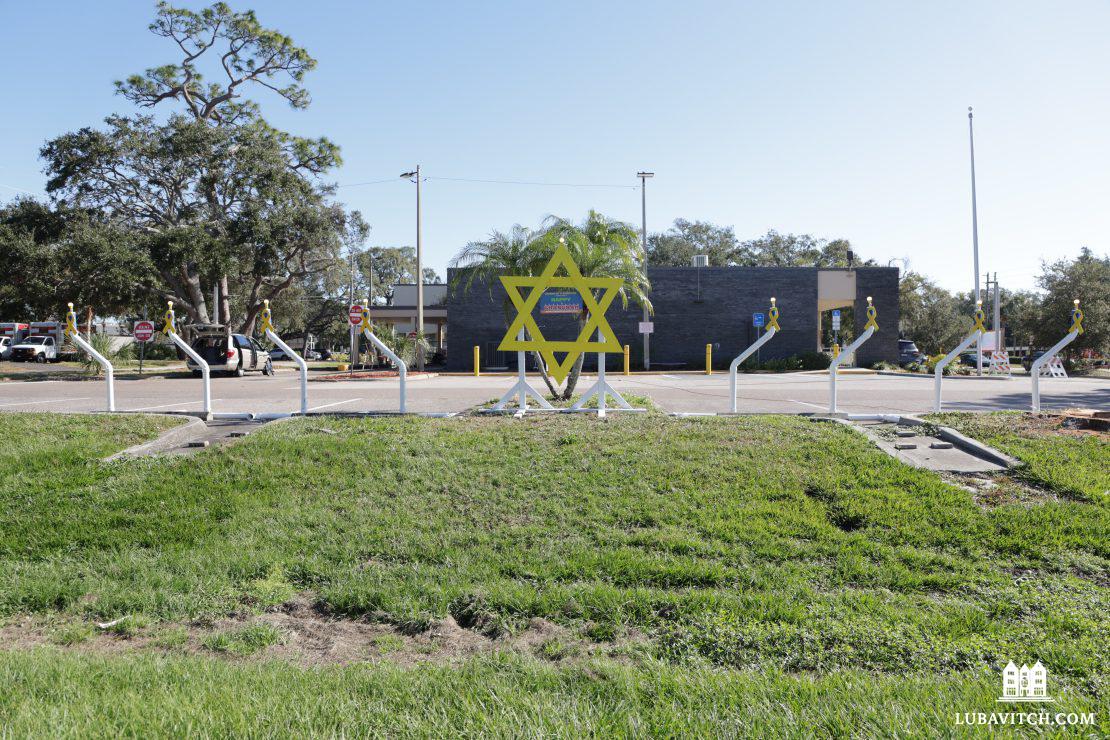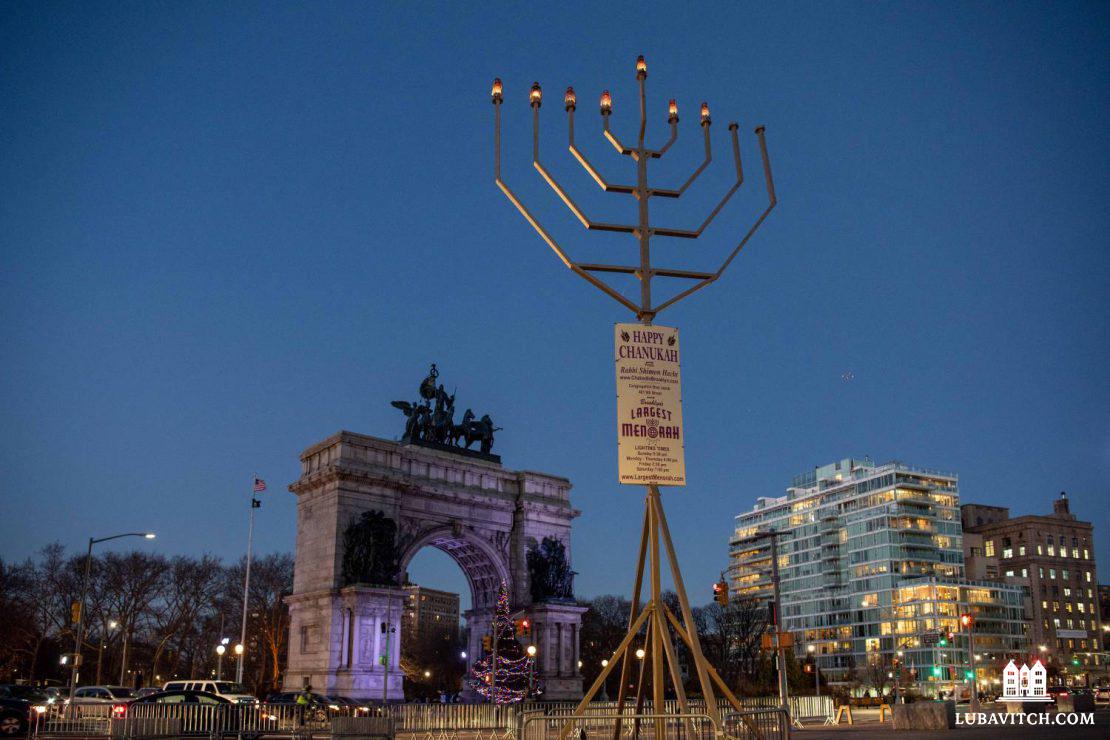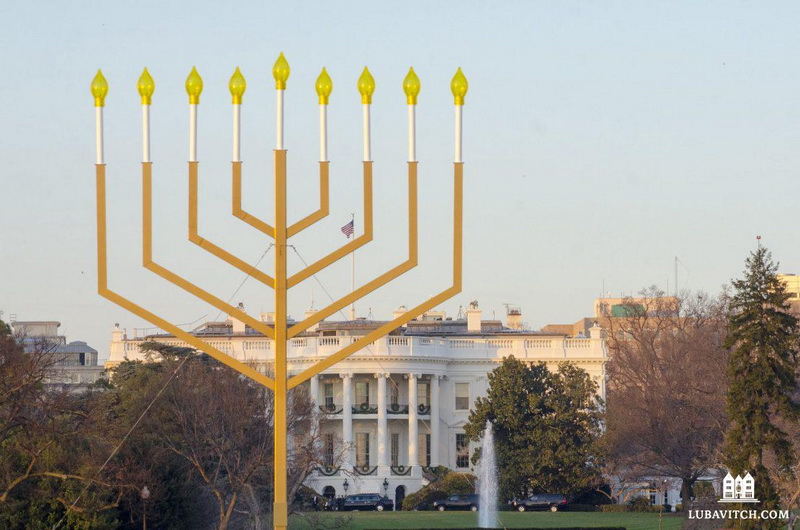
Public Menorahs Turn 50
by Tzemach Feller – Lubavitch.com
In 1989, Craig Degginger was the editor of the Seattle Jewish Transcript. Chabad had been active in the city for a little under two decades, and Degginger recalls joining the annual public menorah lighting Chabad would hold at a public park in Downtown Seattle. He’d take photos for the Transcript, and savor the moment of Jewish pride and connection. “It was incredibly meaningful to do that each winter,” Degginger said.
In the summer of ‘89, the tradition was solidified, as the United States Supreme Court ruled permitting the 18-foot menorah placed by Chabad outside the City-County Building in downtown Pittsburgh, Pennsylvania. The ruling sent shockwaves across the country, reverberating 2,500 miles away in the Pacific Northwest. “That was a landmark religious freedom ruling at that time, right up there with any of the rulings about religious freedom,” Degginger recalled.
The ruling cemented the place of the public menorah in cities and towns across the country—an initiative marking its 50th anniversary this year. In 1974, encouraged by the Lubavitcher Rebbe’s campaign to share Chanukah observance with every Jew, Rabbi Avrohom Shemtov placed the first public menorah at Independence Hall in Philadelphia, Pennsylvania.
Five years later, President Jimmy Carter walked out onto the White House Lawn—his first appearance since the start of the Iran Hostage Crisis—to kindle the shamash on the National Menorah, placed by American Friends of Lubavitch (Chabad). Every year since then, the menorah has been kindled by the organization on the National Mall, with dignitaries (including now-President Biden) attending the event, which is led by Rabbi Levi Shemtov, its Executive Vice-President. This year, as the National Menorah marks its 45th anniversary, thousands will attend its lighting in person, and tens of millions will watch more than 1800 TV spots featuring the lighting.
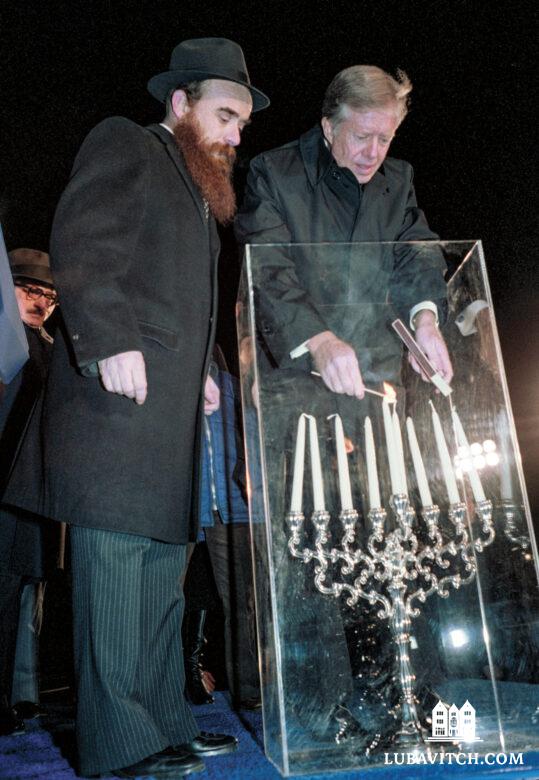
In the years since its launch, “the Rebbe’s Chanukah campaign succeeded to bring ever larger numbers of men, women and children together at both public and private menorah lightings, attracting countless individuals to kindle their own menorahs in their own homes,” said Rabbi Yehuda Krinsky, Chairman of Merkos L’Inyonei Chinuch and Machne Israel.
Still, the public menorah has continued to face challenges. Nearly two decades after the ruling, the Seattle-Tacoma Airport refused to allow a menorah to be placed. But, as Rabbi Krinsky said at the time, “the number of instances where the placement of Chanukah Menorahs in public areas is refused, is rapidly diminishing. Whether we decide to actually litigate or not depends on local circumstances. But we are confident of prevailing, because the menorah is a universal symbol of freedom and independence which totally conforms with the American ideal.”
Some 15,000 menorahs will be erected by Chabad-Lubavitch emissaries around the world. In a sign of just how accepted the public menorah has become, a menorah stands proudly this year in the Seattle-Tacoma Airport!
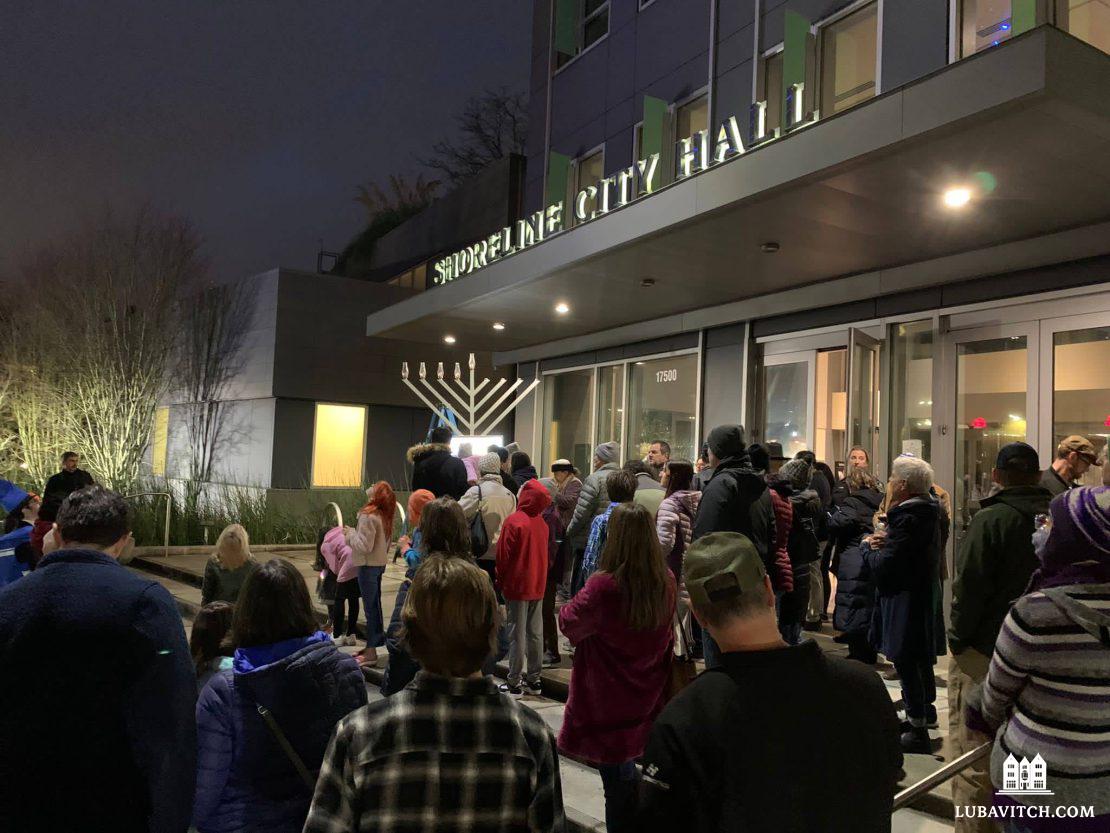
As for Craig Degginger, he will be there in Shoreline, Washington—the Seattle suburb he now calls home—where Rabbi Saadya Davidoff will kindle a giant menorah outside City Hall. “Rabbi and Mrs Davidoff are trying to build something here,” Degginger said. “Chabad meets everybody where they’re at in their Jewishness and everyone is welcome; I think that’s just outstanding.”
“Shoreline has never had a synagogue of any type in its history, and the public menorah lighting is a very important way to bring the Jewish community together,” Degginger said. “Right now—as we’re seeing increased amounts of antisemitism worldwide—it’s just that much more important to be doing this.”
Across the country, Chabad of Clearwater, led by Rabbi Levi and Miriam Hodakov will light a giant “Jumbo Cookie Menorah” as part of a Chanukah celebration at a local park. Daniel Lipman, who is the President of Westinghouse Electric’s nuclear reactors business unit, will kindle that menorah.
“In my view, it’s important for us to show our pride in our faith in a very public way, and to invite the whole community to join us,” Lipman told Lubavitch.com.
He says the public menorah is a crucial expression of the role Jewish people play in the country. “The ability to live in a community where you can outwardly show your pride in your faith is very important to us as Jews—and as Americans too.
”Jews are a part of the fabric of America, whether it’s in the military, in universities, in culture, in science, or in industry like I am. As Americans, we have the obligation to demonstrate pride in our faith.”
